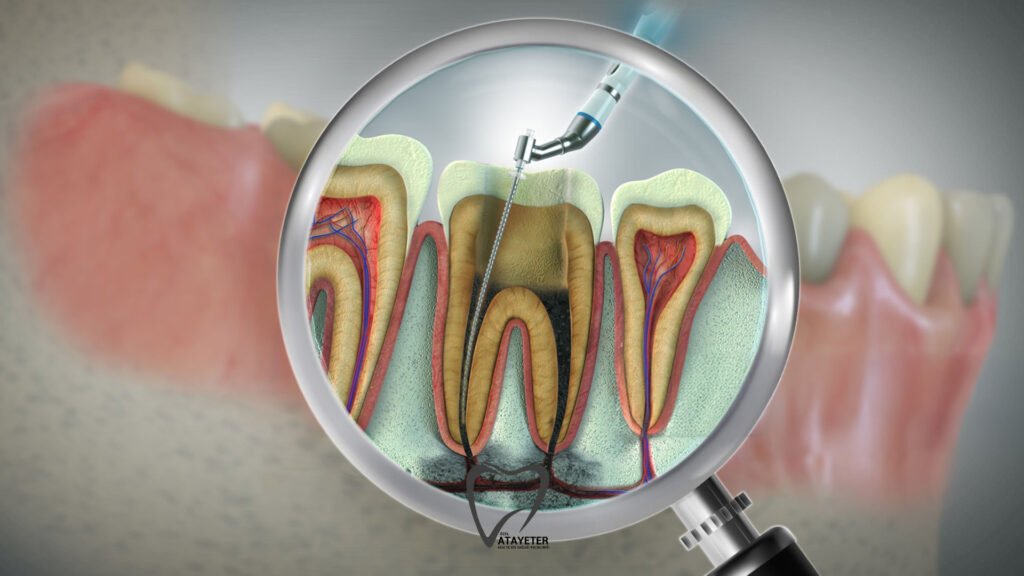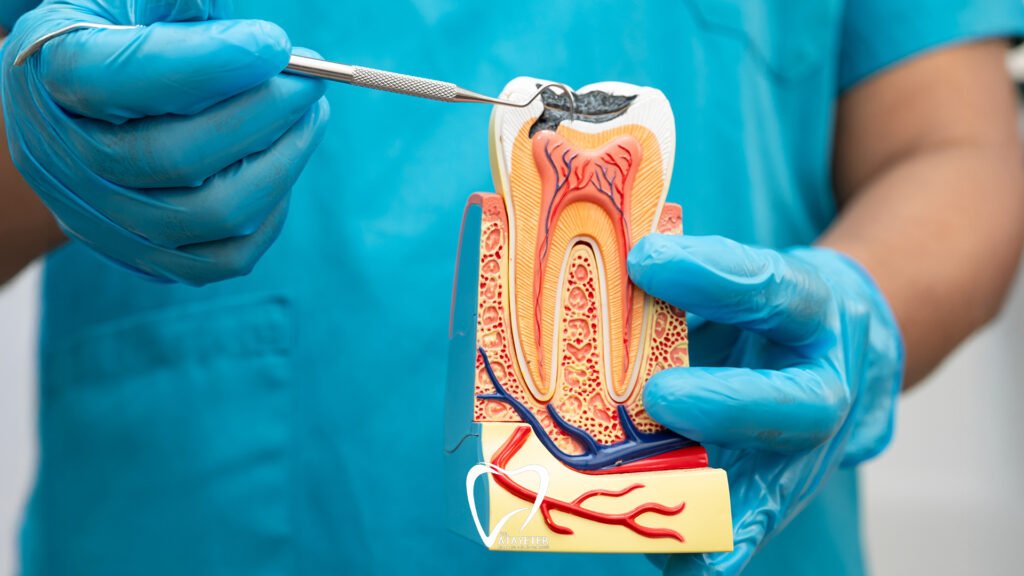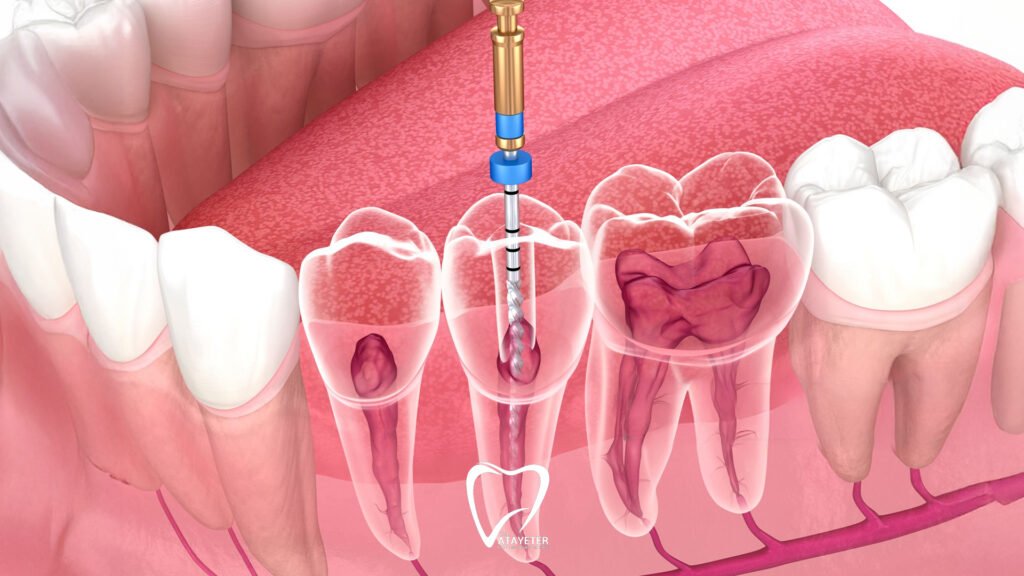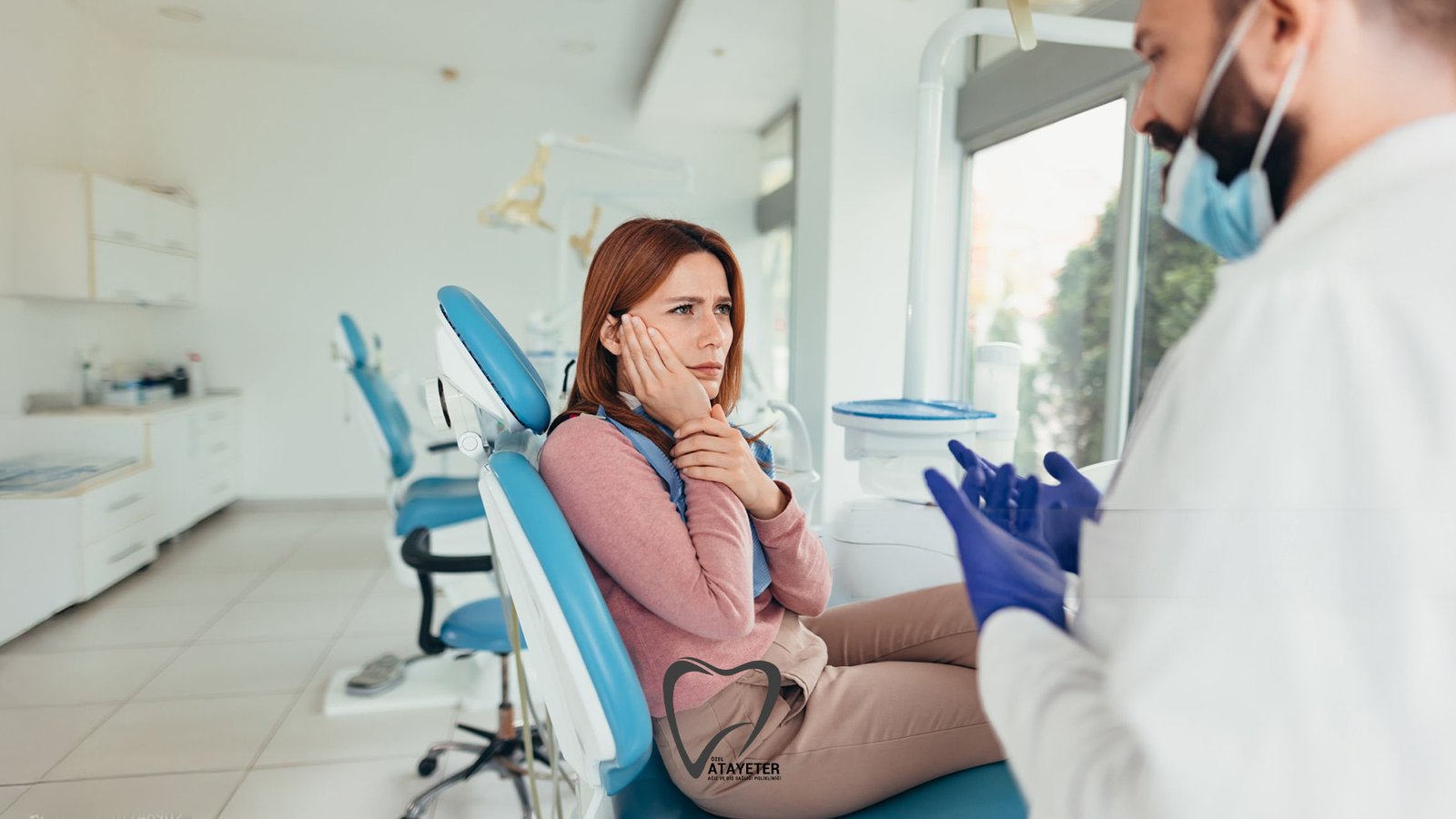Pain After Root Canal Treatment
Dental health is vital not only for an aesthetically pleasing smile but also for our overall quality of life. Even the simple act of chewing, which we unconsciously perform in our daily lives, depends on healthy teeth and gums. However, cavities, deep inflammation, or sudden trauma can damage the living tissue within the tooth, called the pulp. Because the pulp contains the blood vessels and nerves that nourish the tooth, any damage to this area often leads to severe pain, sensitivity, and a significant decrease in quality of life.
We often perform root canal treatment on patients with these complaints. Root canal treatment is one of the most effective and common ways to save a tooth without extraction. During treatment, the inflamed or damaged nerve tissue is cleaned, the root canals are shaped with specialized instruments, and the contents are sealed with sterile filling materials. This allows the tooth to maintain both its function and aesthetic appearance.
However, root canal treatment doesn’t always mean complete pain relief. Many patients experience varying degrees of pain or tenderness for a period of time after treatment. While this is sometimes considered a normal part of the treatment, it can also be a sign of a problem that requires more careful investigation. So, how normal is post-root canal pain, and when should you be concerned?
What is Root Canal Treatment?
A root canal is a dental treatment performed when the living tissue inside a tooth, called the pulp, becomes inflamed or damaged. The pulp consists of blood vessels and nerves that nourish the tooth. Decay, damage requiring deep fillings, trauma to the tooth, or advanced gum disease can cause irreversible damage to the pulp. In these cases, the most effective way to save the tooth is a root canal.

During treatment, the inflamed or damaged nerve tissue inside the tooth is thoroughly cleaned. The root canals are then enlarged and shaped using specialized instruments, and the root canals are disinfected. Finally, the canals are filled with biocompatible filling materials to seal them against external factors. This ensures the tooth remains healthy and functional.
Why Is a Root Canal Treated?
Root canal treatment is one of the most important dental treatments that allows a tooth to be preserved rather than extracted. It is often preferred for severe damage that has progressed to the nerve tissue of the tooth. So, when is this treatment necessary?
Advanced decay: Root canal treatment becomes necessary when tooth decay is too advanced to be treated with a simple filling and has reached the nerve.
Impact or fractures: A sharp blow or crack to the tooth can damage the internal structure of the tooth, necessitating root canal treatment.
Gum problems: Advanced gum disease can damage the root and nerves of the tooth over time, necessitating root canal treatment.
Recurrent decay: Decay beneath a previous filling can re-enter the nerve, making root canal treatment unavoidable.
During treatment, the living tissue (pulp) inside the tooth is completely removed. Therefore, after the procedure is completed, the tooth will no longer feel any nerve-related pain. However, this does not mean that there will be no pain immediately after treatment. Mild sensitivity or pain is normal for the first few days and usually disappears on its own.
Is Pain Normal After Root Canal Treatment?
Pain after root canal treatment is usually not cause for concern. This pain is usually temporary and is considered a natural part of the healing process. As root canals are cleaned during treatment, the surrounding tissues of the tooth are inevitably affected. This can lead to sensitivity and pain that may persist for several days after the procedure.

The characteristics of normal pain are as follows:
- It is usually mild or moderate.
- It is particularly noticeable when eating, chewing, or when pressure is applied to the tooth.
- It gradually diminishes and disappears completely within 2 to 7 days.
Therefore, this type of pain experienced immediately after root canal treatment is usually a sign of the tooth’s healing process and resolves on its own within a short time.
What Causes Pain After Root Canal Treatment?
Pain felt after root canal treatment can have various causes. While some of this pain is a natural consequence of the treatment process, others may be a sign of an additional problem. Here are the main causes of pain after root canal treatment:
- Tissue sensitivity around the tooth: The specialized instruments used during treatment can irritate the tissues surrounding the root apex. This usually causes temporary tenderness and subsides within a few days.
- Incomplete infection removal: In some cases, bacteria present in root canals may not be completely removed. This can cause the infection to persist and prolong the pain.
- Overflow of filling material: If the filling material overflows from the root apex, it can irritate the surrounding tissues, leading to pain.
- Pressure from biting and chewing: Immediately after treatment, the tooth becomes more sensitive, especially during chewing. Therefore, it is normal to experience pain while eating for a few days.
- Hidden cracks or other problems in the tooth: Sometimes, previously unnoticed small cracks or additional problems may occur in the treated tooth. These conditions can cause persistent pain.

How Long Does Pain Last After Root Canal Treatment?
- Mild pain or tenderness: This usually begins to subside within 2-3 days.
- Moderate pain: This can last up to a week.
- Severe and persistent pain: This is not normal. If it lasts longer than 10 days, it’s essential to consult a dentist.
How to Relieve Pain After Root Canal Treatment?
Painkiller Use:
Painkillers prescribed by your doctor can be used regularly. Medications such as ibuprofen and paracetamol are particularly effective.
Cold Compress:
Applying a cold compress externally to the treated area can relieve swelling and pain.
Avoid excessive pressure on the tooth:
In the first days after treatment, hard foods should be avoided and excessive chewing should be avoided with the treated tooth.
Pay close attention to oral hygiene:
Keep your mouth clean with regular brushing and gargling to reduce the risk of infection.
Follow your doctor’s advice:
Additional antibiotics or other medications may sometimes be prescribed after root canal treatment. It is important to take these medications regularly.







Comments are closed